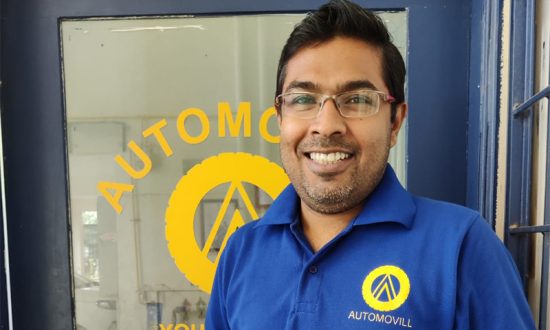Mridu Mahendra Das is the Co-founder and CEO of Automovill, a one stop solution for all automobile services. The Bengaluru headquartered startup was founded in 2016. The brand took a completely innovative approach to build conviction. It connects the car holders and technicians with the entire system of Automobile service. The overall company growth, new initiative, investor relationship and marketing are looked after by Mr. Das.
In recent years, automotive manufacturers have become increasingly aware of the impact caused by the Internal Combustion Engine vehicles on the environment. This has already led several manufacturers to announce their plans to phase out the ICE model development and transition towards the EVS models, where most people believe the future lies.
This indicates how the automotive market is undergoing an unprecedented transformation. Presently the conversion from the conventional kind of individual-based mobility primarily operated by the ICE is actively shifting towards the more sustainable drive systems offered by the electrical mobility. Although the given projection on the adaptability of EVS is quite ambitious, regardless, it is only prudent to evaluate what will be the future of the related services if the predictions are correct? One such area of services that needs focus is Auto Aftersales, and what could be its future? Can EVS overthrow ICE in auto after-sales?
How is EVS overtaking ICE?
Today, the notion revolving around EVS has evolved tremendously. Once, they were considered unreliable due to the lack of charging ports, limited travelling distance and low powering. Still, now they are proven to be accessible to charged, high performing, conscious environmental investment. The scepticism has dissolved into excitement with their advancement in battery technology and expansion of charging facilities. This has mainly paved the way for EVS to overthrow the market of ICE cars soon. With specific projections estimating that by this decade, EVS will be adopted entirely everywhere, leaving ICE unavailing.
Subsequently, the government of India has actively asserted numerous initiatives to advance the growth and manufacturing of EVS in India. Capital studies are given to purchase electric vehicles under the FAME -1 and FAME-2 schemes. Tax reduction occurred when GST was reduced from 12% to 5% on EVS. Furthermore, an income tax deduction on 1,50,000Rs is also allowed on the interest paid on loans taken to buy EVS.
But all of these benefits remain valid on the on-road price of such vehicles. Other services like Auto after the sale are also important no matter which type of vehicle an individual buys. Customer satisfaction is majorly based on their after-sale service and can become an essential factor for the growth in revenue or sales of the model. In India, the tech support of EVs is pacing quickly. For instance, battery servicing can be incredibly tricky for EVS owners. Still, at the same time, the EVs produced by the Indian companies offer a battery warranty of up to 1.6 lakh km or eight years.
Impact on Auto After-Sales
For a car owner, one of the most crucial aspects of choosing a vehicle model is their possible customer service and how good their auto after-sales can be. When the traditional ICE vehicles were solely in trend, car repairs and auto after-sales majorly included moving heavy parts under the hood. And most of them were categorised as mechanical, which means they were subjected to wear and tears. In addition, the probability of breaking these parts was also high.
Coming to EVS, the part changing aspect of auto after-sales services isn’t as technical as it was in ICE models. The maintenance of these cars is also more widely spread. Depending on the manufacturer or the brand, owners can send their electric vehicles for servicing every two years. In contrast, the rule of thumb for ICE vehicles is to get them serviced after every 10,000 km travel. These factors contribute to EVS, leading to more cost-efficient maintenance than the ICE models. But there are more things to consider.
Service areas will have to adapt
To accommodate EVs services, the dealers of the after-sales market will have to modify and adapt their workshops accordingly. Many will have to install charging points vital to maintaining these vehicles. This could be expensive without findings. Technician safety must also be ensured while dealing with EVS. Many dealers are preparing dedicated service bays for the equipment required for the maintenance work, along with safety tools needed, such as rubber mats to offer extra protection. Along with which new services will need to emerge like, battery testing and recharging, high voltage electric cabling checks and works, suspension checks, brake checks, steering checks, tyre replacement, windscreen wiper replacement, wheels and lights and all associated works.
Conclusion:
Look at the current trends, EV engines starting with 2w, 3w and lately 4w’s will certainly be the preferably choice of the future Auto Industry. For passenger cars, EV journey seems far ahead as it will take at least a decade to grow or reach as big as million cars against today close figure of 0.7% total passenger cars sold in India.


